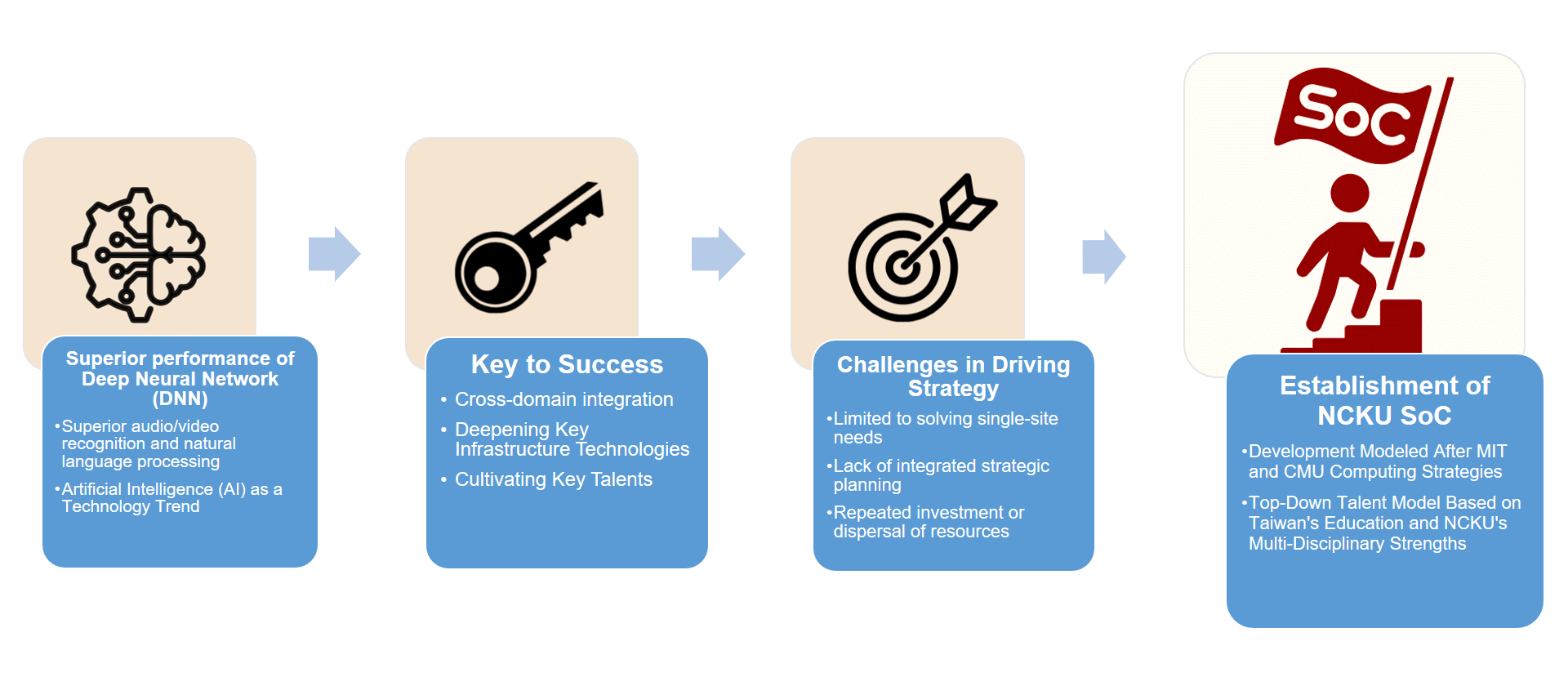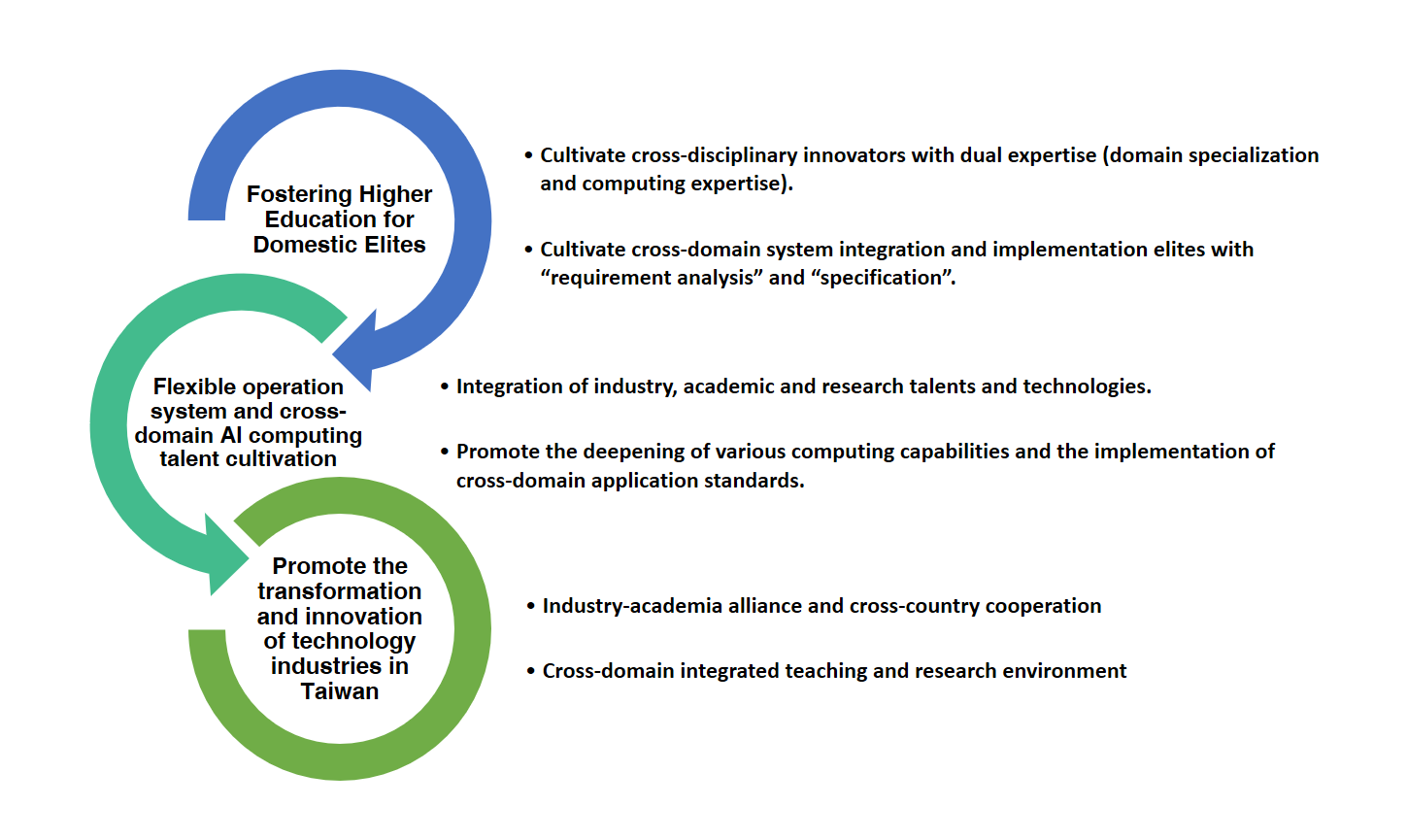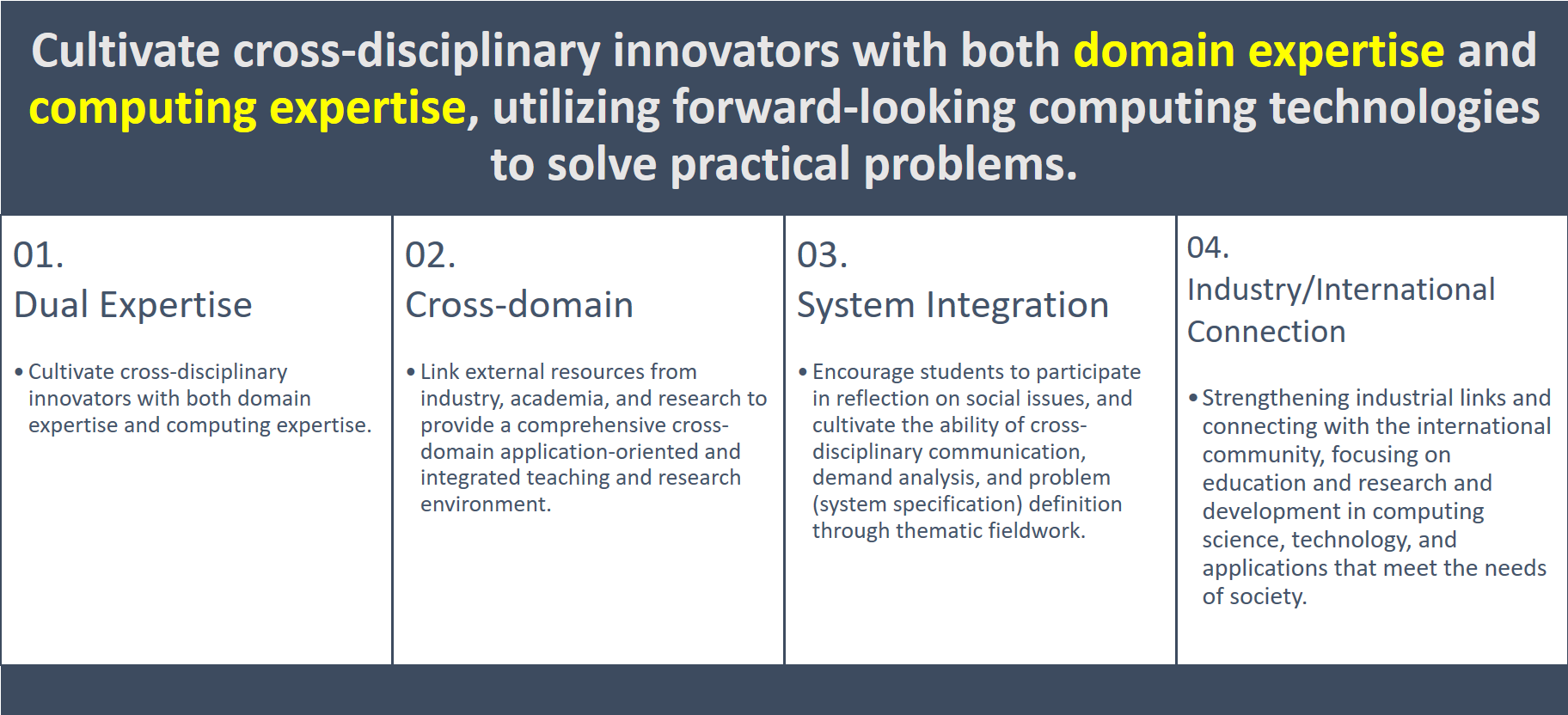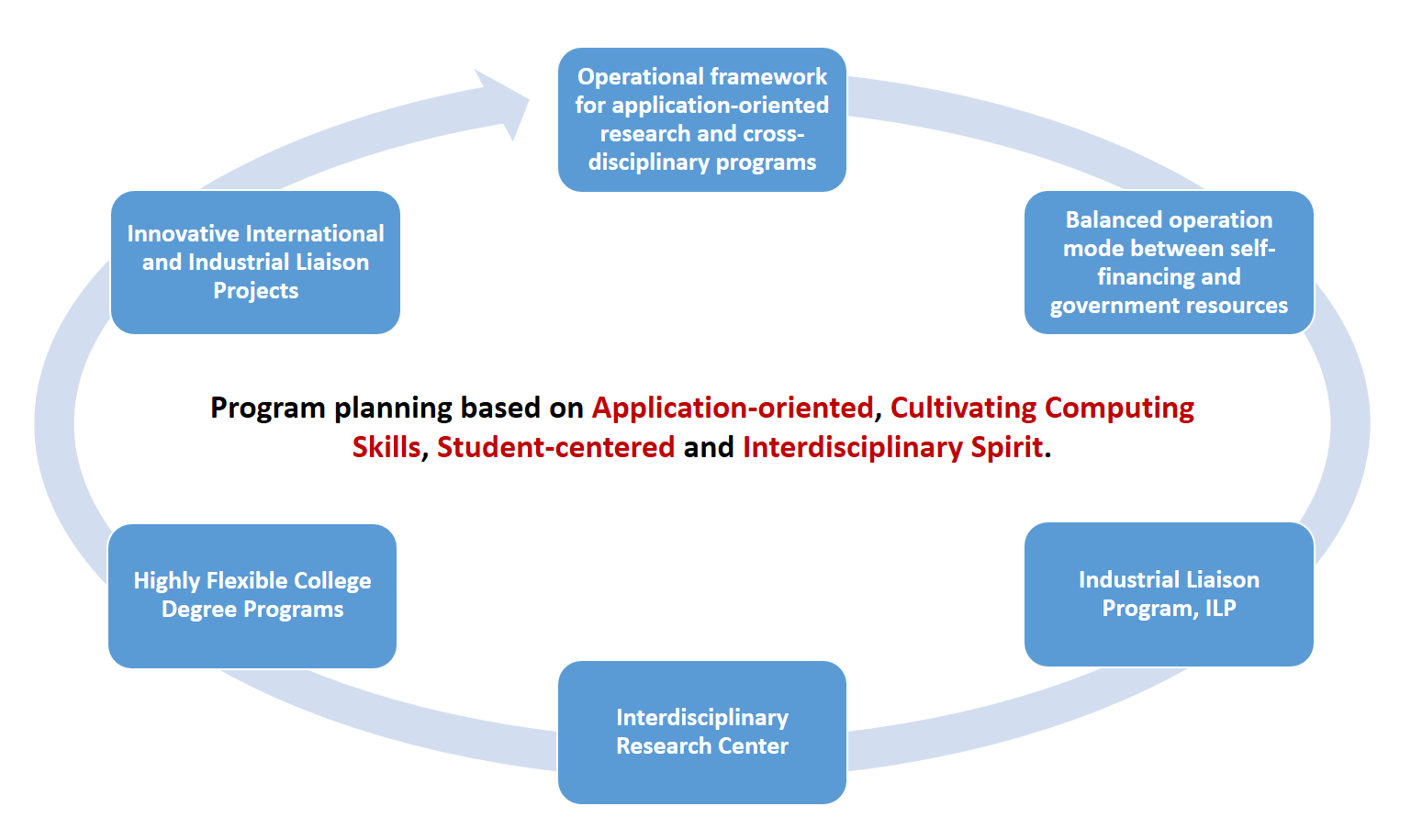Origin
Miin-Wu School of Computing at National Cheng Kung University (NCKU) was established in response to the rapid advancements and global significance of Artificial Intelligence (AI). Inspired by groundbreaking achievements such as AlphaGo and the transformative potential of AI across industries, NCKU recognized the urgent need for interdisciplinary talent development.
Backed by a generous NT$420 million donation from Miin Wu, Chairman of MACRONIX, the school was launched to foster innovation and build a robust AI talent ecosystem in Taiwan. Embracing models like MIT's Schwarzman College of Computing and Carnegie Mellon University’s interdisciplinary approach, NCKU leverages its nine colleges to break traditional educational boundaries and cultivate a new generation of tech leaders.

Our mission is clear: to empower students with strong foundations in computing, statistics, and numerical analysis, while promoting interdisciplinary integration and practical innovation. Miin-Wu School of Computing represents a bold step toward reshaping Taiwan’s higher education landscape and positioning NCKU at the forefront of the global AI era.
Vision
At NCKU, we are committed to shaping the future through talent development and innovation. As global challenges and technologies evolve, we strive to stay agile — embracing reflection, reform, and interdisciplinary collaboration.
The Miin Wu School of Computing is our response to the rapid growth of AI and computing. Our vision is to become a leading force in cultivating innovative, cross-disciplinary talent in Taiwan and beyond. By combining strong foundations in mathematics, statistics, and core computing skills with real-world problem-solving and system integration, we aim to nurture leaders who can drive meaningful social impact.
Through collaboration with leading global industries and research institutions, and under the guidance of President Jenny Su and Vice President Cheng-Wen Wu, we are building a future-ready education model. Supported by influential figures such as Miin Wu (MACRONIX), Bruce C.H. Cheng (Delta Electronics), Jui-Tsung Chen (Compal), Peter Chen (Qisda), Lee-Feng Chien (Google Taiwan), and Tzi-Cker Chiueh (ITRI), the school leverages public-private synergy to fuel innovation, promote digital transformation, and support industrial advancement.
Our goal is to create an interdisciplinary environment where students gain expertise in both computing and their chosen fields — empowering them to lead in the AI-driven world.

Goals
Miin-Wu School of Computing draws inspiration from global leaders like MIT and Carnegie Mellon University to redefine AI and computing education in Taiwan. Our goal is to create a dynamic, interdisciplinary environment where innovation meets real-world application.
We are committed to:
-
Bilingual & Dual Expertise Education
Train future leaders fluent in both their specialized fields and computing. Equip them with the skills to analyze needs and design systems across industries. -
Interdisciplinary Integration
Leverage the strengths of NCKU’s nine colleges and foster collaboration across academia, industry, and research to create a well-rounded, application-driven education ecosystem. -
Systematic Thinking & Social Impact
Promote hands-on learning through real-world projects. Students gain experience in interdisciplinary teamwork, needs assessment, and system integration to tackle societal challenges. -
Industry & Global Connectivity
Bridge education with industry and international partners. Focus on computing R&D and training that meet evolving global and societal needs.

At Miin-Wu School of Computing, we believe advanced technology should serve humanity. Through innovative education and global collaboration, we prepare students to make a meaningful impact.
Features
Seeing the trend that numerous disciplines will depend on computing, the teaching philosophy is bound to integrate multiple disciplines' applied courses and related professional training. Unlike the existing computing department (deepened and specialized in developing its technology), our school has a degree program with a perfect matching mechanism and operating model to reach the interdisciplinary goals. Relevant curriculum planning is based on application-oriented computing skills. The educational and research tasks of the faculty and the students are also conducted with the same focus. As the first domestic newly-created school of computing, we have summarized our features as follows:
- Application-oriented research and interdisciplinary programs
- Balanced operating model between self-funding and government resources
- Membership-based Industrial Liaison Program (ILP)
- Interdisciplinary Research Centers
- Highly flexible degree programs
- Innovative international and industrial connection

